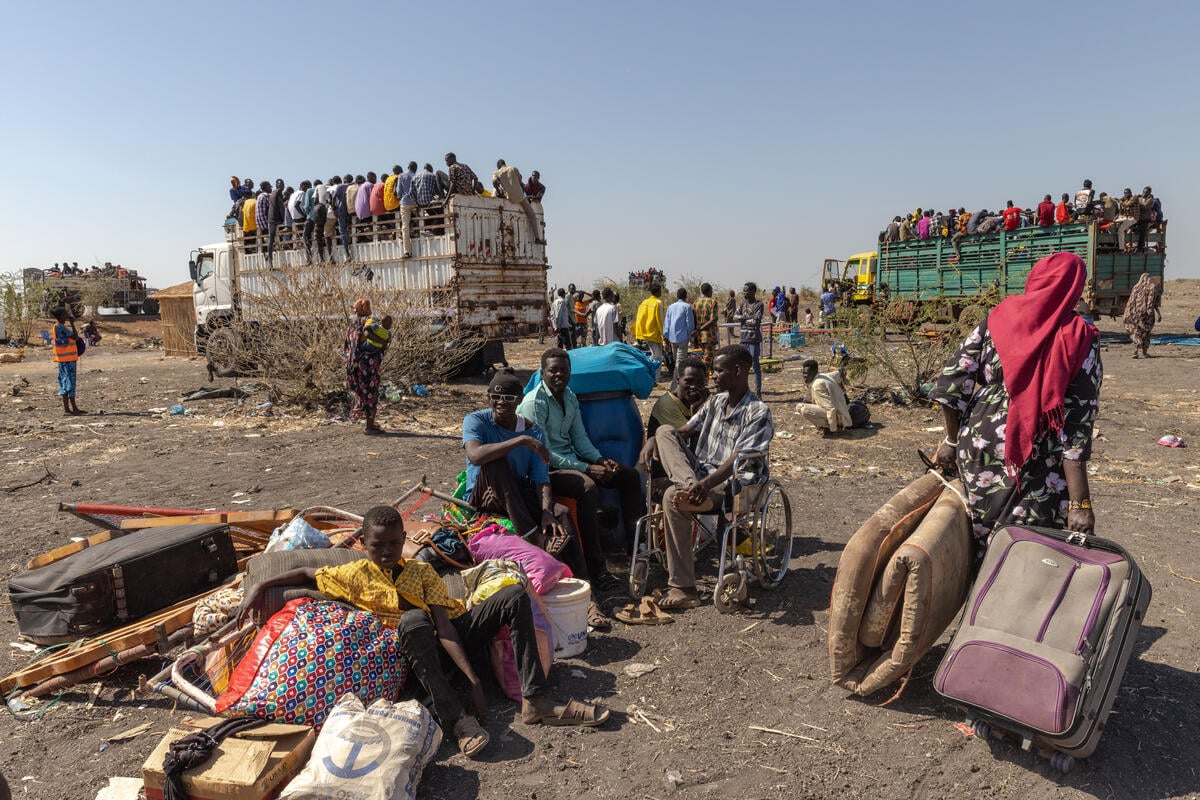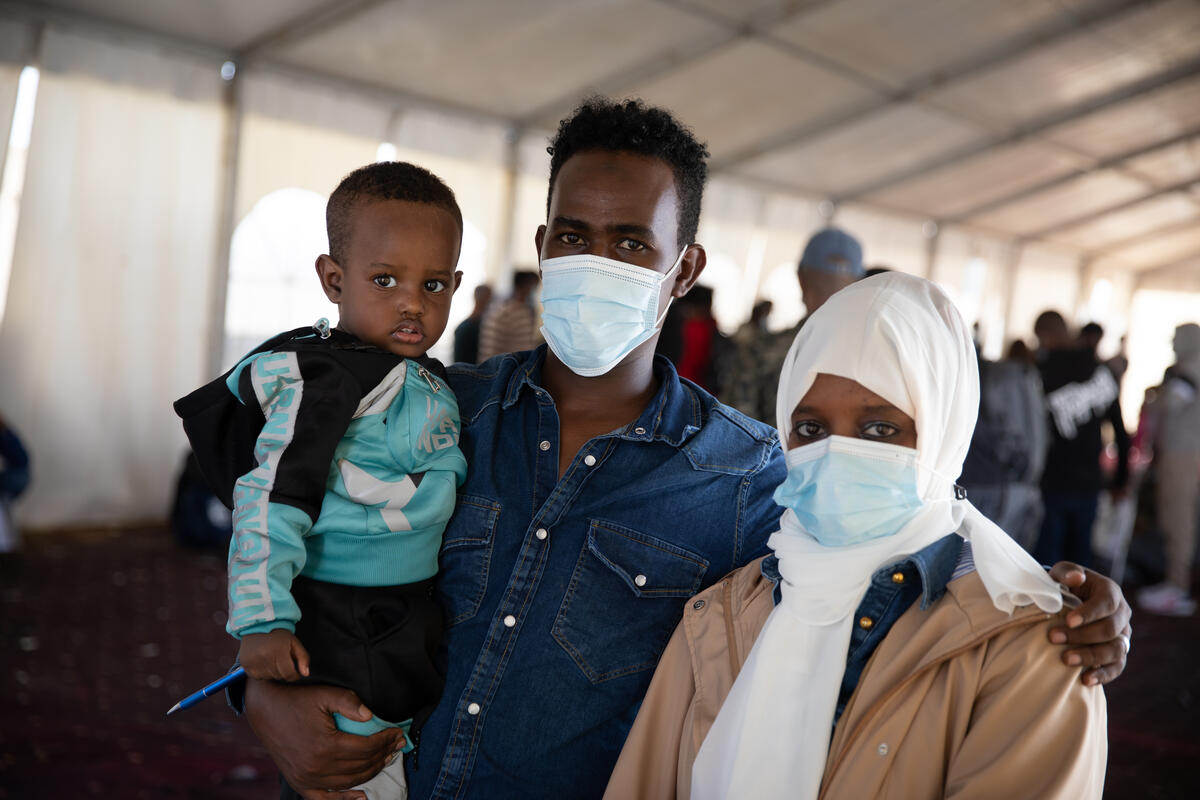Libya: Continuing concern about the situation of third country nationals and Libyan displaced
Libya: Continuing concern about the situation of third country nationals and Libyan displaced
UNHCR and partners in Libya continue to be concerned about the situation of third country nationals, including refugees. UNHCR and IOM have been working closely with the National Transitional Council Stabilization Team to try to improve the protection situation for refugees and migrants. The Stabilization Team is already coordinating with the Ministry of Justice and the Ministry of Interior to put into place a strategy that includes public messages to the general public, temporary documentation for migrants and identification of shelter and other services for vulnerable migrants, asylum-seekers and refugees.
UNHCR staff have carried out a series of field visits to areas where refugees and asylum-seekers are living in Tripoli. UNHCR met with a group of 60 Sudanese from Darfur, some of whom were injured when they were caught up in the conflict, but otherwise reporting stable relations with the local community. A group of Eritreans said that two of their compatriots died in cross fire during the conflict in Sabha. Since UNHCR and IOM have restored their respective hotline services in the Tripoli area, large numbers of calls have been received from refugees and migrants reporting numerous protection incidents, including detention and need for food assistance.
UNHCR has been contacted by the local military council in Zintan, Nafussa mountains, asking us to identify solutions for a group of third country nationals, reportedly Somalis. UNHCR has also heard from a group of Somalis fleeing the Sabha area currently surrounded by NTC forces. IOM and UNHCR together with an implementing partner are organizing evacuation of this group to Tripoli.
UNHCR has also made a number of visits to areas where Libyans are displaced. Over a thousand people from the village of Tewergha (30 km south of Bani Walid) are living in three displacement settlements in the Tripoli suburbs. They say their homes and schools had been destroyed. In addition, around 6000 people from Tarhona (55 km south-east of Tripoli) are living in three different sites in the suburbs of Tripoli and a number of schools. Another 6000 people from Bani Walid fled the conflict to three locations between 30 and 60 km from Bani Walid.
Meanwhile in the east of the country Libyan Aid has reported that there are still over 50,000 displaced, just under half in Benghazi, although initial returns are reported in a number of towns, such as Ajdabiya. Only a small number of those displaced from Brega have returned home so far, stating lack of electricity, medical services and presence of unexploded ordinances as the main barriers to return. UNHCR's partner, ACTED is undertaking an assessment of shelter damage in eastern Libya and will distribute UNHCR shelter items and cooking kits to hundreds of families from Brega, Ras Lanouf, Zlitan and other cities.
For further information on this topic, please contact:
- In Geneva: Sybella Wilkes on mobile +41 79 557 9138









